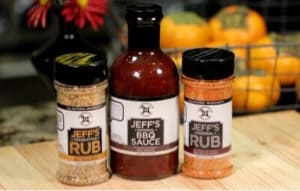Hey guys. I have a RecTec 700RT pellet smoker and I just bought a food dehydrator. This is the first time I started getting into making beef Jerky and because I'm on a weird diet, I can only season with sea salt and also staying away from the smoke for a little while. Also, I can't do the chemical salts either, and prefer not to use them anyway.
So in the past whenever I made dry sausage, the salt rule was 3% to weight of meat. I'm wondering if this is the same for beef jerky because I made a few batches and it just seems a little salty to me. I'm worried that if I add less salt than this, I'm risking the meat being exposed to bad bacteria within the 40°F - 140°F range while dehydrating.
I know usually leaner cuts of meat are used, but I wanted to try brisket as jerky, plus the price was good per LB lol. So I sliced up a full packer brisket and used sea salt at 3% to weight of the meat slices. I mixed well and let it sit in the refrigerator for 24 hours before putting the slices on the dehydrator. The dehydrator recommends 165°F so thats what I set it at. I did notice however with the dehydrator stocked, it takes a while to get to that temp which also is concerning. I tested this with an independent thermopro thermometer. The dehydrator I'm using is a Cosori 600w 6 tray.
So what do you guys think? Am I on the right track here? Is 3% salt what it needs to be to stay safe? It's not easy to find out how much salt because all the recipes I've seen so far have a lot of other ingredients that I can't use. Only sea salt for now. Thanks.
John
So in the past whenever I made dry sausage, the salt rule was 3% to weight of meat. I'm wondering if this is the same for beef jerky because I made a few batches and it just seems a little salty to me. I'm worried that if I add less salt than this, I'm risking the meat being exposed to bad bacteria within the 40°F - 140°F range while dehydrating.
I know usually leaner cuts of meat are used, but I wanted to try brisket as jerky, plus the price was good per LB lol. So I sliced up a full packer brisket and used sea salt at 3% to weight of the meat slices. I mixed well and let it sit in the refrigerator for 24 hours before putting the slices on the dehydrator. The dehydrator recommends 165°F so thats what I set it at. I did notice however with the dehydrator stocked, it takes a while to get to that temp which also is concerning. I tested this with an independent thermopro thermometer. The dehydrator I'm using is a Cosori 600w 6 tray.
So what do you guys think? Am I on the right track here? Is 3% salt what it needs to be to stay safe? It's not easy to find out how much salt because all the recipes I've seen so far have a lot of other ingredients that I can't use. Only sea salt for now. Thanks.
John




